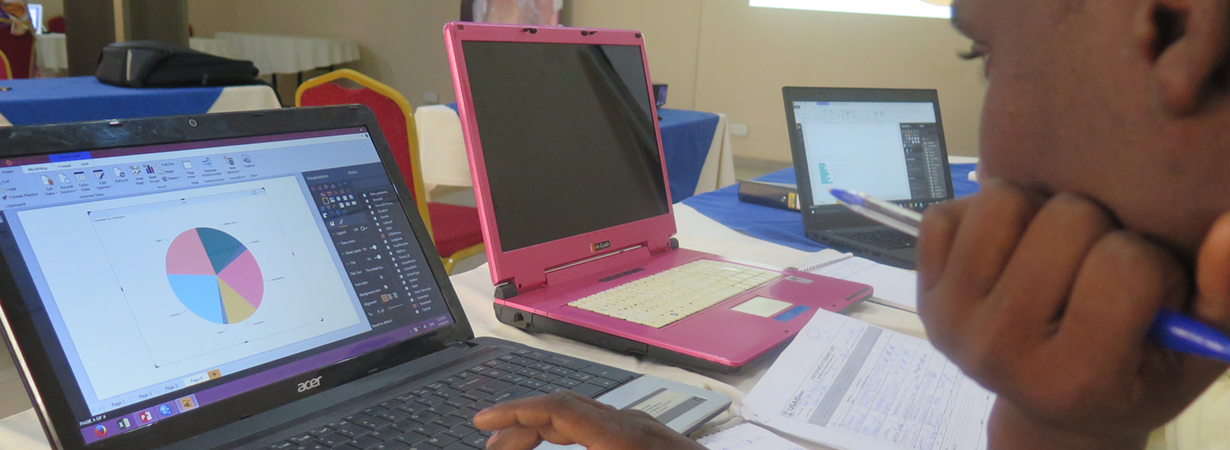
The Initiative’s Monitoring and Evaluation system is designed to provide high-quality and accurate data to all key stakeholders at federal, state and local government levels to improve pupils’ early grade reading achievements and increase access to educational opportunities. An additional crucial goal is to ensure the sustainability of Monitoring and Evaluation system components within state partner institutions by building capacity for on-going monitoring and integration of monitoring tools into the education system.
A strong measurement and evidence base undergirds the project. The Initiative conducts baseline, mid-line and end-line surveys to determine project effectiveness. Ongoing monitoring and evaluation as well as special studies and assessments also helps the project learn what is working and what needs strengthening. Evidence is generated from project activities to help frame policies for planning and budgeting, and other decision-making.
The Initiative coordinates internally within its various components – Teacher Education, Reading, Access and Fragility, Monitoring and Evaluation, Community Mobilization, and Capacity Building to identify key monitoring elements needed for the development of a simple and holistic monitoring tool to track quality early grade reading instruction delivery, learners’ attendance and other related factors.
Providing evidence for education
To ensure effective monitoring, the project supports states in conducting monitoring visits and routine review of data. These findings are used to strengthen education implementation.
There is also a method established for monitoring Civil Society Organizations and supporting Local Government Education Authorities and communities to monitor Non-Formal Learning Centers and schools.
Ongoing monitoring and support helps local communities understand their roles and responsibilities to monitor quality, safety in schools and centers and distribution of teaching and learning materials.
Building capacity of partners
The Initiative also supports Civil Society Organizations to integrate simple management and tracking tools within their systems that assist Center Based Management Committees to monitor Non-Formal Learning Centers against quality and access performance indicators.
The project collaborates with State Universal Basic Education Boards, State Agencies for Mass Education and Local Government Education Authorities to use ICT-driven monitoring tools to measure school performance against benchmarks and standards, and obtain and track real-time data on school quality and safety.
Working in this systemic manner, will ensure state actors continue to effectively monitor and evaluate early grade reading progress beyond the life of the project.

